The importance of politics and the youth
The Khomas Regional Executive Committee (KREC) hosted a panel discussion for the youth to “reflect on the state of politics in Namibia and the importance of youth in shaping the national political discourse.”
Tunohole Mungoba
According to Maximalliant Katjimune, Namibia National Students Organisation (NANSO) KREC Secretary for Political & Internal Affairs, young people, as future policy drafters have a critical duty to hold the state accountable and to ensure that the founding principles of the Namibian constitution are strictly adhered to. “It is rather sad that a precedent of ignorance and lack of interest in national discourse matters continue to plug Namibian youth. We need to reignite young people’s interest in political discussion,” he says.
The invited youthful panellists prepared and presented formal papers on different topics related to youth engagement in politics. Participants from different institutions of higher learning and high schools were invited to a Saturday of deliberations at the Katutura Multipurpose Youth Centre the panellists together with the participants built towards a more vibrant and responsible Namibian youth.
“The objective of the panel discussion will be to raise a greater political consciousness among the youth and to navigate and find our place in modern day Namibian political paradigms. The youth will articulate themselves on how to build a coherent and better society in a fast changing political environment,” says Katjimune. He also adds that the discussions will centre on how leaders in government must govern the country in the interests of all citizens but specifically for the betterment of young people. The documents presented at the talk will represent what Namibian youth in general want regarding their society and the future of their country.
Anna Wasserfall, the programme manager of the Konrad Adenauer Stiftung Namibia-Angola (KAS) welcomed all at the discussion and emphasised on the importance of the youth being involved in politics. KAS is one of the six political foundations that are recognised by the German state and is active in more than 120 countries worldwide. “Even up to this day, politics is still typically regarded as a space for experienced men and women, so that young people are often excluded or overlooked as political candidates. While young people often play central and catalysing roles in civil society movements around the world, they are still significantly less engaged than older generations when it comes to voting and party activism. Their young age, their limited opportunities and their lack of practical experience leads to a systematical marginalization of young people in the political arena, which again results in frustration and discouragement,” says Wasserfall.
She says that everyone as a nation will have to look at all the innovative and alternative methods to formal and traditional political participation that are already in existence and are only waiting to be used. “No generation before us have even been as digitalized, informed and connected as we are today, and we have to ensure that we use these tools in an effective and responsible manner, and that means not only for our leisure time pleasure, but also in order to engage, form and express political opinions, hold our elected representatives accountable and through that, reignite and foster the interest of young people in the political discussion.
The panel consisted of 6 University of Namibia (UNAM) students from a number of faculties. The panellists engaged the audience on a number of thought provoking topics that was aimed to raise that political consciousness which should prevail among the youth.
Joseph Kalimbwe, former UNAM SRC President 2017 sparked ideas as he began and explained about the ‘Arabic awakening.’ He touched on answering the call of a generation that goes beyond being involved in overtaking power from leaders. “Young people just need to participate by getting involved in activities of questioning the government's decisions, activities and ways of governance,” Kalimbwe says. He challenged the youth to question the status quo and not to just complain when things are not going right. “It is very important that youth cease to be social media complainers as they have to get involved in the decisions being made by the government,” he urges.
The topic of progress and development by Johan De Waal, UNAM’s faculty representative of humanities and social sciences and a third year Bachelor of Arts A in Philosophy & Political Studies. “Progress and development of a nation is determined politically, because nations are themselves political constructs. African problems include poverty, political corruption, ignorance, and dependency on foreign aid. These problems are in part caused by culture. The political commitments of African people and their leaders are a direct cause, but even these commitments are a product of their respective cultures,” De Waal says. He continued to say that conservatism is Africa’s enemy of progress as cultures around the continent are poorly adapted to the challenges of the political landscape. “Some of our political weaknesses are caused by our culture. It is then quite humanistic to say that we must abandon the old ways and replace our dysfunctional culture with something superior, that would empower us to become something more,” he says.
Participants left the discussion with a greater and more conscious understanding of politics and the crucial role the youth play in national political discourse as there was a question and answer section after all the talks. The discussion papers presented by the panellists will be edited and compiled into a Working Document that will serve as a benchmark for similar youth engagements.
According to Maximalliant Katjimune, Namibia National Students Organisation (NANSO) KREC Secretary for Political & Internal Affairs, young people, as future policy drafters have a critical duty to hold the state accountable and to ensure that the founding principles of the Namibian constitution are strictly adhered to. “It is rather sad that a precedent of ignorance and lack of interest in national discourse matters continue to plug Namibian youth. We need to reignite young people’s interest in political discussion,” he says.
The invited youthful panellists prepared and presented formal papers on different topics related to youth engagement in politics. Participants from different institutions of higher learning and high schools were invited to a Saturday of deliberations at the Katutura Multipurpose Youth Centre the panellists together with the participants built towards a more vibrant and responsible Namibian youth.
“The objective of the panel discussion will be to raise a greater political consciousness among the youth and to navigate and find our place in modern day Namibian political paradigms. The youth will articulate themselves on how to build a coherent and better society in a fast changing political environment,” says Katjimune. He also adds that the discussions will centre on how leaders in government must govern the country in the interests of all citizens but specifically for the betterment of young people. The documents presented at the talk will represent what Namibian youth in general want regarding their society and the future of their country.
Anna Wasserfall, the programme manager of the Konrad Adenauer Stiftung Namibia-Angola (KAS) welcomed all at the discussion and emphasised on the importance of the youth being involved in politics. KAS is one of the six political foundations that are recognised by the German state and is active in more than 120 countries worldwide. “Even up to this day, politics is still typically regarded as a space for experienced men and women, so that young people are often excluded or overlooked as political candidates. While young people often play central and catalysing roles in civil society movements around the world, they are still significantly less engaged than older generations when it comes to voting and party activism. Their young age, their limited opportunities and their lack of practical experience leads to a systematical marginalization of young people in the political arena, which again results in frustration and discouragement,” says Wasserfall.
She says that everyone as a nation will have to look at all the innovative and alternative methods to formal and traditional political participation that are already in existence and are only waiting to be used. “No generation before us have even been as digitalized, informed and connected as we are today, and we have to ensure that we use these tools in an effective and responsible manner, and that means not only for our leisure time pleasure, but also in order to engage, form and express political opinions, hold our elected representatives accountable and through that, reignite and foster the interest of young people in the political discussion.
The panel consisted of 6 University of Namibia (UNAM) students from a number of faculties. The panellists engaged the audience on a number of thought provoking topics that was aimed to raise that political consciousness which should prevail among the youth.
Joseph Kalimbwe, former UNAM SRC President 2017 sparked ideas as he began and explained about the ‘Arabic awakening.’ He touched on answering the call of a generation that goes beyond being involved in overtaking power from leaders. “Young people just need to participate by getting involved in activities of questioning the government's decisions, activities and ways of governance,” Kalimbwe says. He challenged the youth to question the status quo and not to just complain when things are not going right. “It is very important that youth cease to be social media complainers as they have to get involved in the decisions being made by the government,” he urges.
The topic of progress and development by Johan De Waal, UNAM’s faculty representative of humanities and social sciences and a third year Bachelor of Arts A in Philosophy & Political Studies. “Progress and development of a nation is determined politically, because nations are themselves political constructs. African problems include poverty, political corruption, ignorance, and dependency on foreign aid. These problems are in part caused by culture. The political commitments of African people and their leaders are a direct cause, but even these commitments are a product of their respective cultures,” De Waal says. He continued to say that conservatism is Africa’s enemy of progress as cultures around the continent are poorly adapted to the challenges of the political landscape. “Some of our political weaknesses are caused by our culture. It is then quite humanistic to say that we must abandon the old ways and replace our dysfunctional culture with something superior, that would empower us to become something more,” he says.
Participants left the discussion with a greater and more conscious understanding of politics and the crucial role the youth play in national political discourse as there was a question and answer section after all the talks. The discussion papers presented by the panellists will be edited and compiled into a Working Document that will serve as a benchmark for similar youth engagements.



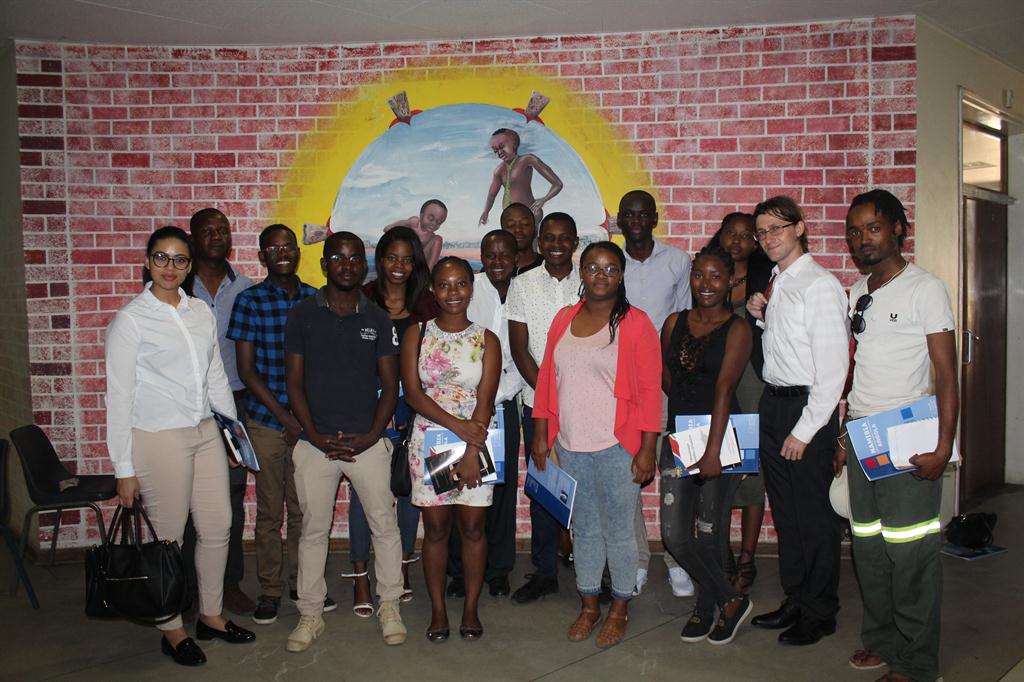
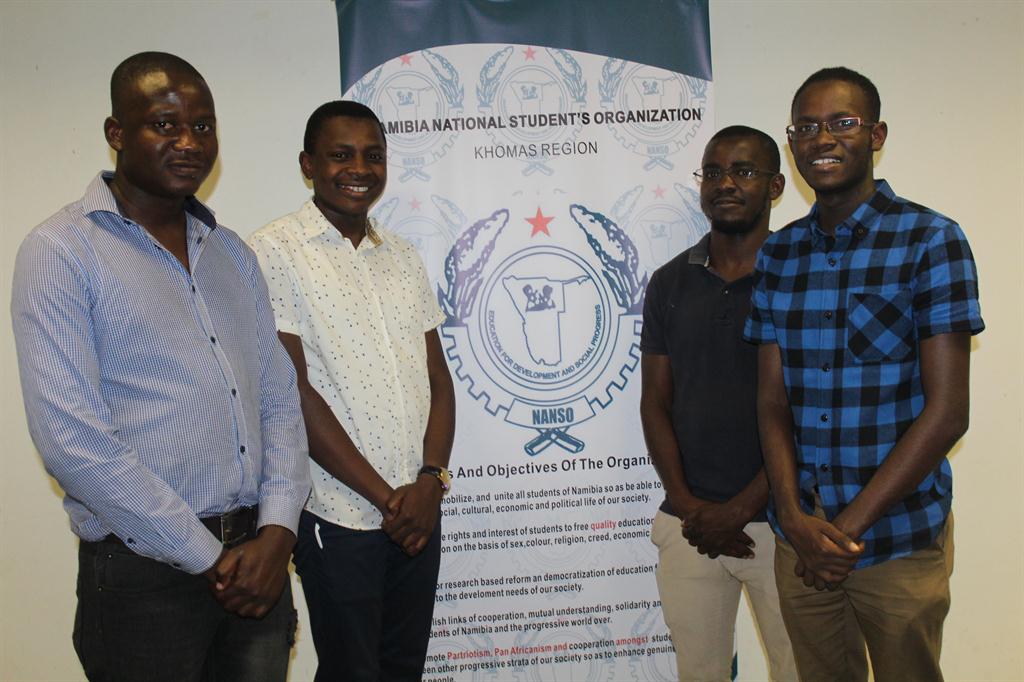
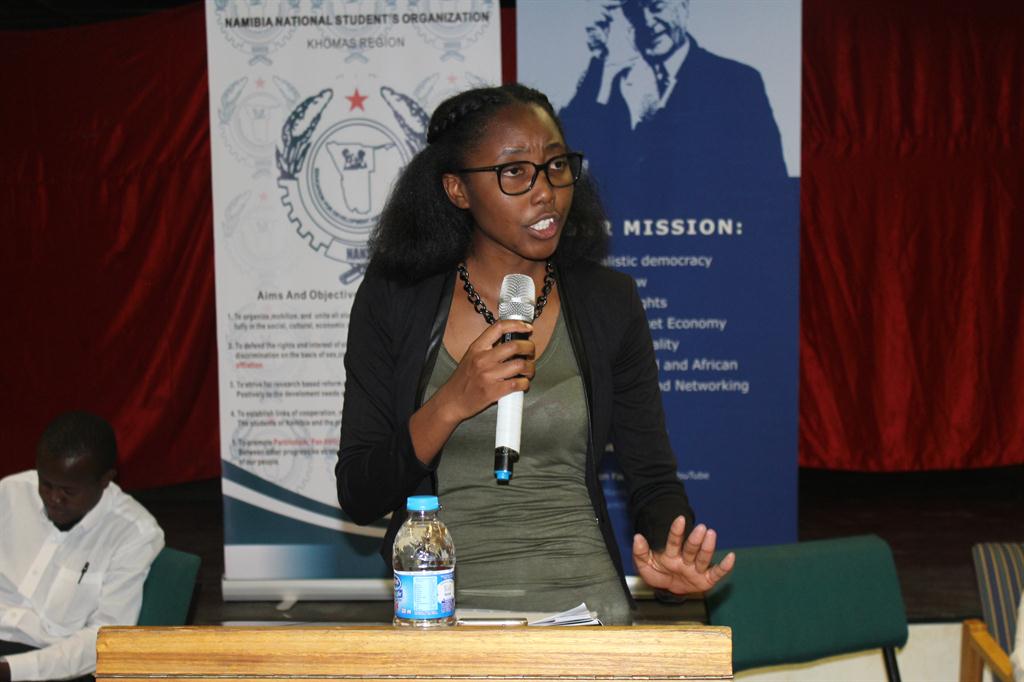
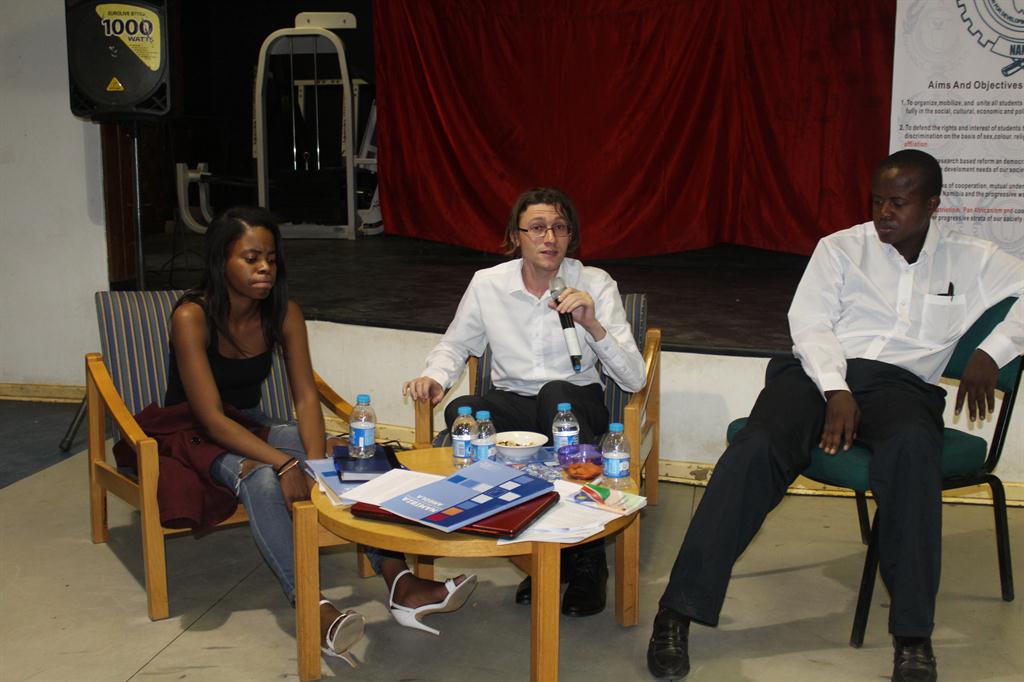
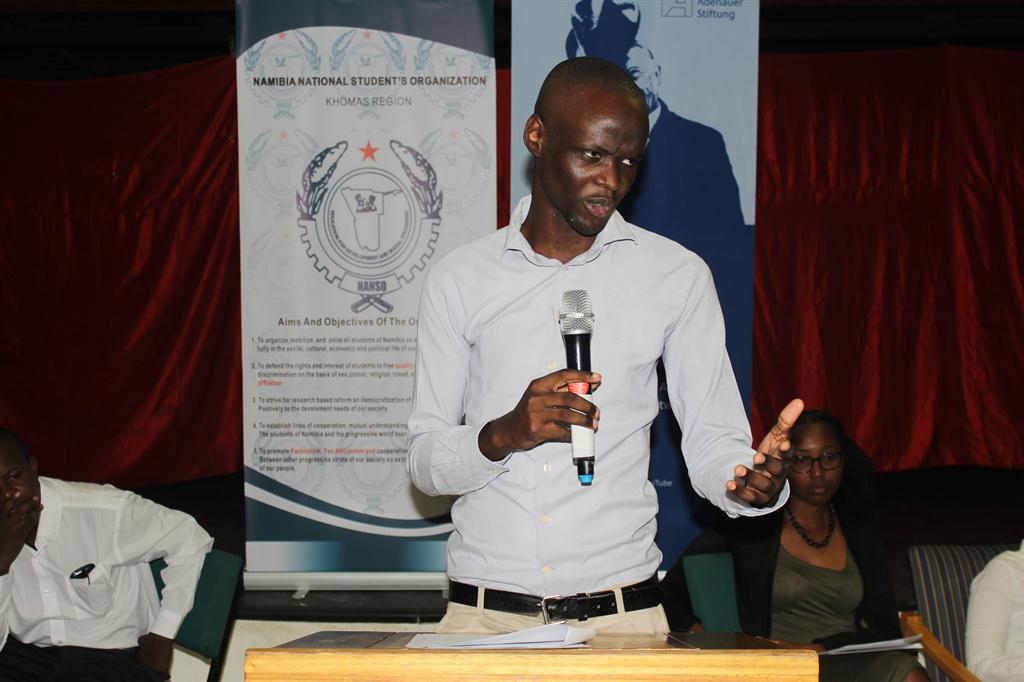

Comments
Namibian Sun
No comments have been left on this article